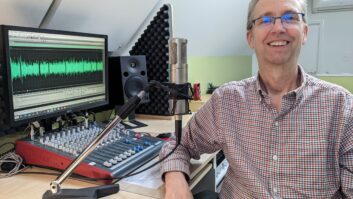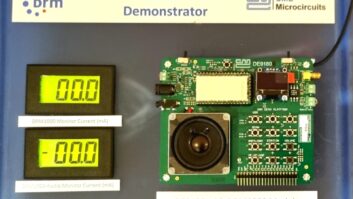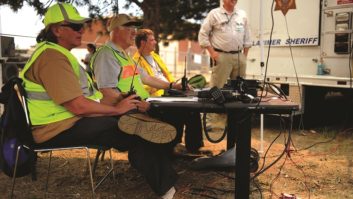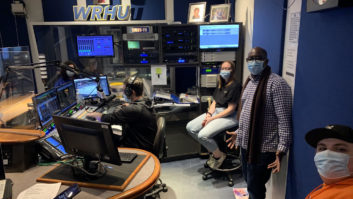Be Prepared on a Local Level
Sep 1, 2012 2:00 AM, By Chriss Scherer, editor
Part of our nature as technology managers is to prepare our stations for unforeseen emergency situations — OK, that’s a formal way of saying disaster preparedness. I know some stations have elaborate plans in place to cover nearly any possibility. While the primary intent of these preparations may be designed to keep the business operation and revenue stream functioning, the plans also ensure our listeners will still have a radio signal during an emergency.
Regardless of the disaster — natural or man-made — when a crisis occurs, the public turns to the broadcast media for information. But while the station may have a plan in place to remain on the air, the plan can only be implemented if people can get to the studio or transmitter to carry it out. It may be that roads are blocked or some kind of perimeter is established around a crisis area.
When I was the president of the SBE a few years ago, an idea was proposed to create some kind of national credential that would allow certain broadcast personnel access to their sites during emergencies. Think of a station engineer being able to present a Department of Homeland Security or FEMA badge to show he has a reason to cross the boundary. The idea has merit, but as it was explored it became clear that to issue such credentials on a federal level would be a bureaucratic quagmire. While a federal ID may have some clout, the engineer would likely be showing it to a local policeman or national guardsman. It seemed approaching this idea on a local or regional level made more sense, even if it meant the same effort would be repeated in many locations.
At a recent SBE Meeting in Kansas City, the chapter chairman, Mike Rogers, raised the topic. He reported that the Mid-America Regional Council (MARC) established the Metropolitan Emergency Managers Committee (MEMC) to bring the various police, fire and EMS teams together to establish common communication and operational plans. Rogers realized that even though plans may be in place for these agencies to communicate with each other, their work did not yet include a plan for the agencies or the MEMC to communicate with the public. Simply tying in to EAS was only one part of the effort.
Rogers began attending MEMC meetings as a representative of Kansas City SBE Chapter 59 to include broadcast stations in the preparedness plans. One of his primary messages was to highlight the importance of not just getting information to the public, but allowing broadcasters to ensure their signals are on the air to be an active conduit.
What may result is some kind of identification for the broadcast engineering community to allow them uninhibited access to their sites during emergency situations. To me, this type of local or regional credential is better than a federally issued credential. The local patrolman may know nothing about a FEMA or DHS ID, or even believe it’s legitimate. Verifying the federal ID would be nearly impossible. The local or regional ID, however, would be easier to validate. The local approach also helps prevent abuse. An ID issued in Kansas City is useless in Cincinnati.
I applaud Rogers’ efforts and the support of SBE Chapter 59 to take on this project. Similar efforts may be taking place in other areas as well (and if you know of them, please let me know). While each community or region may end up inventing the same wheel, the result will be more effective communication between the emergency managers and the public.
Farewell to a friend
On Aug. 28, 2012, Radio magazine lost a member of our family when John Battison passed away. He had a long history with Radio magazine as our technical editor, and an even longer history of service to broadcast engineering. I’ll always smile remembering John saying that “Audio is something that messes up a nice, clean carrier.”
September 2012
ESPN Radio broadcasts the All Star Game, the latest in program distribution, portable PAs, and Field Reports on Adobe Audition CS6 and the RDL HR-MCP2….












